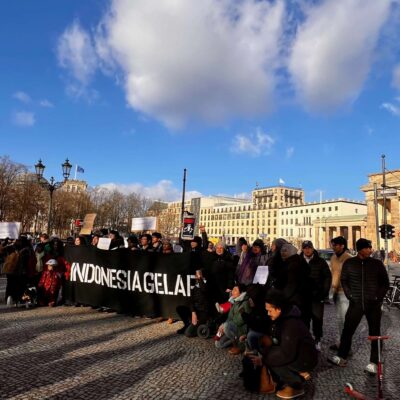The Sri Lankan public has expressed its growing dissatisfaction over recent years with the work of parliament and members of parliament (MPs). Often, the work of parliament and the legislature is undermined by brawls, crises and other disruptions. Recently, public apathy has given way to a more direct aversion to parliament and parliamentarians. In 2022, the country faced dire effects of an economic crisis in the form of power cuts, and fuel and medicine shortages. The public protests centred around demanding the resignation of all 225 MPs along with the then-President, for their failure to represent the public effectively. This frustration boiled over into public dissent, which included the burning of houses belonging to ruling party MPs on May 9 and a takeover of key government buildings including the presidential palace on July 9. In the four parliamentary sittings since the 9 May attacks, however, MPs spent only 34 percent of parliament time debating the economic crisis, choosing instead to spend 45 percent of productive time on the events of May 9.
Manthri.lk, a digital platform which helps the public find out what is happening in parliament and how members of parliament are performing, plays an increasingly pivotal role in making Sri Lanka’s parliament answerable, transparent and relevant to the people. This article explores the history of parliamentary monitoring practices in Sri Lanka and Manthri.lk’s successes and challenges.
Background
Sri Lanka gained full-fledged independence and sovereignty as a state in 1972. A presidential system was introduced under the Constitution of 1978. The President is the head of state and the head of government and is elected by the people for a five-year term. Executive power is exercised by the President on the advice of the Prime Minister and the Cabinet of Ministers. The Prime Minister and Cabinet are selected from the representatives elected by popular vote in general elections, held every five years.
The earliest form of parliamentary monitoring took place primarily in relation to elections, which were conducted in a relatively free and fair manner till the late 1970s. However, post-election violence was a key feature from the 1980s till the 2010s.
A group of civil society leaders came together in 1982 during the conduct of a referendum held in lieu of a presidential election, which was perceived as a threat to democracy. Key civil society organisations such as MARGA, SARVODAYA and the Center for Society & Religion, organised a form of continuous engagement in 1987 which was called the Peoples’ Alliance for Free and Fair Elections. Later, the Movement for Free and Fair Elections was established, which worked in collaboration with the Peoples’ Alliance for Free and Fair Elections. With an increase in election-related violence, the Center for Monitoring Election Violence was formed in 1997. In 2008, another monitoring body emerged named the Campaign for Free and Fair Elections.
Shifts in the focus of monitoring
These networks monitored elections in Sri Lanka while paying attention to different dimensions of the election process at risk. Some organisations became part of an Asia-wide network, the Asian Network of Free and Fair Elections. This collaboration enabled Sri Lankan monitoring initiatives to mobilise delegations of international observers and thus enhance the credibility and impartiality of the monitoring processes and reduce the degree of election malpractice and violence. This work also helped introduce better election laws as well as administrative and enforcement measures that help make elections free and fair. Assessments by both Sri Lankan and regional/international monitoring organisations suggest a significant reduction of malpractice and violence during the elections held in 2010, 2015 and 2019/20.
However, public confidence in the presidency and parliament has eroded over the last 15 years or so. This stems from the lack of credibility, competence, integrity and the form of MPs’ conduct, from both ruling and opposition parties. This is also partly compounded by the enormous amounts of campaign money spent as incentives to vote for a particular party or a candidate.
Manthri.lk’s methodology
On August 23, 2013, a significant development in Sri Lanka’s democratic space allowed the public access to the contributions and deliberations that take place within the state legislature. Manthri.lk, the country’s first-ever parliamentary monitoring platform, began to shine a spotlight on the hitherto opaque nature of the Parliament of Sri Lanka. This was accomplished by analysing a wealth of data made available through the verbatim records of parliamentary sittings, Hansard. Until this visibility was provided, the Sri Lankan public had little or no awareness of what happens within the parliament.
The Manthri.lk platform is managed by the Parliament Research Team of Verité Research, an independent private think tank. The platform quantifies MPs’ written or oral contributions within the chamber using an internally developed unique coding methodology that analyses, quantifies and catalogues Hansards. MPs across the political spectrum were first surveyed. This survey sought to understand how much time was taken to prepare or make a contribution in parliament. Based on the survey results, appropriate ‘productive time’ scores for each of the 39 possible methods of contribution were computed. These scores were determined either by the frequency of a particular input (e.g. a written question) or by volume (i.e. based on minutes of preparation time per line, e.g., an adjournment motion – which is an oral contribution). The resulting scoring guide specifies values for each method of contribution, such as assigning 30 minutes of productive time to each written question. (More information about the methodology can be found on the Manthri.lk website.)
Manthri.lk’s methodology underscores the importance of MPs’ active engagement in Parliament. While qualitative input cannot be directly assessed, the effort MPs invest in their roles as legislators is measured in terms of productive time. The scoring system remains consistent throughout each MP’s parliamentary tenure, enabling a fair and cross-sectional relative ranking of any MP at any point during the parliamentary session. The coding methodology has been conducted for over 1,000 sittings of parliament in the past decade.
By scoring and ranking MPs, the platform aims to recognise those who work diligently, often without media coverage, and incentivise others to improve their performance. This process enhances the transparency of the parliamentary process, rewarding hard work and fostering a culture of answerability. This in turn shines a spotlight on work done in parliament and helps voters to assess the contributions of their elected representatives. Manthri.lk’s work also incentivises MPs to do better, by acknowledging outstanding contributions publicly on a monthly and yearly basis. (More information about the categories used can be found on the Manthri.lk website.)
Impact
In 2020, ahead of the general election held that year, Manthri.lk awarded medals to top contributors from the preceding Parliament in various categories. MPs leveraged this recognition to boost their profiles and campaigns ahead of the election.
The platform has also increasingly given attention to the performance of parliament as an institution, and the executive appointed within it. It maintains dashboards by monitoring parliamentary activity through Order Papers (the formal agenda for each sitting of Parliament), proposed legislation and written questions; and scrutinises the functioning of parliament in relation to the convening of committees according to standing orders and proactively sharing information with the public.
The research team at Verité Research provides briefings tor MPs on request, to support a better understanding of issues and proposed legislation under debated. The research team also provides training to civil society organisations on engaging effectively with parliament. Manthri.lk also helps civil society organisations navigate the complexities of parliamentary engagement. Civil society organisations which want to engage with MPs, influence policies, and obtain information directly from ministers, often struggle with navigating parliamentary processes. Manthri.lk helps bridge the information gap regarding whom to approach for specific issues, what can be accomplished through parliament, and how to navigate these procedures.
In 2022, the platform introduced ManthriWatch, an almost real-time channel broadcasting daily parliamentary session highlights on social media platforms such as TikTok and Twitter. The platform’s social media targets the majority Sinhala and English-speaking audiences of the voter base in Sri Lanka, but the team’s educational efforts and civic training programmes have been specifically designed to cater to all people in Sri Lanka, including the Tamil-speaking communities in the Northern and Eastern provinces.
Recently Manthri.lk has championed the concept of ‘rational government’, based on its recommendations to more efficiently structure ministries, and has campaigned to reduce the number of ministries in the Sri Lankan executive to 15. The objective of this campaign is to establish a fixed scope for each ministry, thereby preventing frequent changes that undermine stability and efficiency. Manthri.lk has consistently highlighted the absurdity and irrationality of the current ministerial structure, and has presented its proposal to various political parties currently represented in parliament. These presentations emphasise the benefits of a streamlined ministerial structure, including improved coordination, clearer accountability, and enhanced policy implementation. The proposal’s positive reception by multiple political parties, including the Prime Minister and Leader of the Opposition, is an indication that there is recognition of the necessity of the suggested reforms across the political spectrum.
Limitations of the platform
Manthri.lk’s MP ranking system focuses on the quantity rather than the quality of contributions. The current methodology provides insights into the activity levels of MPs, highlighting the MPs with the most frequent and least frequently participate in the chamber. This approach offers a valuable perspective on MPs’ level of engagement, but it does not assess the qualitative aspects of their contributions, as such assessments can be complicated and subjective to measure. The quantitative ranking system allows impartial cross-comparisons.
The platform’s ranking system does not currently consider contributions made by MPs in parliamentary committees due to an information gap in terms of visibility and awareness. Manthri.lk is actively addressing this by requesting information through the Right to Information Act, No. 12 of 2016, and by creating a ranking system by attendance both within the chamber and within committees, for which data is already made available by Parliament.
Additionally, it is challenging to provide timely updates on MP rankings and performance. The manual coding of Hansards is a time-consuming process, as each Hansard on average is 90 pages in length and there are typically eight parliamentary sittings per month. This process is compounded by delays in Hansard publication by Parliament. Manthri.lk is looking into utilising technological advancements in artificial intelligence to overcome this lag in the coming years, hopefully paving the way for automated Hansard coding in the future.
Parliamentary transparency is crucial for democracy in Sri Lanka and elsewhere in Asia
Manthri.lk’s ongoing work in providing a greater degree of parliamentary transparency, and through it, driving positive change in MP and voter behaviour, becomes more pivotal in the context of the coming year. Sri Lanka anticipates a presidential election in 2024, with conversations emerging about both the possibility of an early general election, or possible postponements of both. In this context, the need for objective analysis of parliamentarians’ work, ease of access to information on parliament to the public, and advocacy for better functioning systems of government becomes even more urgent.
While making parliament more accountable, transparent and relevant to the people of Sri Lanka, Manthri.lk also hopes to provide its expertise in parliamentary monitoring to educate peer organisations in the region. In particular, Manthri.lk has recently engaged in conversations with other parliamentary monitoring organisations in the region towards establishing an Asian Network of PMOs. One of the key expected outcomes of this network, which is presently in the process of being formalised, is knowledge-sharing. As a to-be founding member of this network over the next two years, Manthri.lk hopes to leverage its expertise and best practices in parliamentary monitoring to help foster a stronger culture of parliamentary transparency and monitoring in other nations in Asia. A common platform provided through this network will allow Manthri.lk easier access to the resources and teams in other countries as well.
Parliamentary transparency is a key part of pursuing healthier, more vibrant democracies and safeguarding democratic practices.
Authors: Tasha Goonewardene, Udan Fernando and Nevanka de Silva Jayatilleke
Acknowledgements:
The sections on Manthri.lk’s methodology, scoring and impact were written by Tasha Goonewardene of Verité Research, with editorial support from Nevanka de Silva Jayatilleke, Verité Research. The introductory sections on history and context of monitoring organisations are written by Udan Fernando based on his experience of working with the organisations mentioned as an election observer (PAFFREL and MFFE) and researcher (CMEV, CAFFE and ANFREL) during the period of 1996 – 2021. Thanks are due to Chandani Watawala, Executive Director, Asian Network of Free and Fair Elections, based in Bangkok, for sharing her views that informed the section on the impact of monitoring and shifts of focus of monitoring. Interview held on 6th May 2024.
Image: Anti-government protest in Sri Lanka on April 13, 2022 in front of the Presidential Secretariat. Credit: AntanO/WikiCommons.




